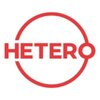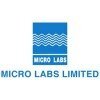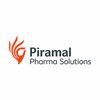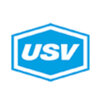
i
Hikal
Filter interviews by
Hikal Interview Questions and Answers
57 Interview questions
Achieving monthly production targets requires strategic planning, efficient resource management, and continuous improvement.
Set clear, measurable goals for each month based on historical data and market demand.
Implement lean manufacturing techniques to minimize waste and optimize processes.
Conduct regular team meetings to assess progress and address any challenges promptly.
Utilize performance metrics to track prod...
I would like to know more about the team structure and the projects I would be working on as an AutoCAD Draughtsman.
What software versions does the team primarily use?
Can you describe the typical workflow for a project?
What opportunities are there for professional development?
How does the team handle feedback and revisions?
I am motivated by creativity, problem-solving, and the satisfaction of bringing ideas to life through precise drafting.
Creativity: I enjoy transforming concepts into detailed designs, like creating innovative layouts for architectural projects.
Problem-solving: I thrive on overcoming challenges, such as finding efficient solutions for complex design requirements.
Attention to detail: The precision in drafting motiva...
Experienced AutoCAD Draughtsman with a strong background in architectural and engineering design, skilled in creating detailed drawings.
Graduated with a diploma in Civil Engineering, where I developed foundational skills in drafting and design.
Worked at XYZ Engineering for 3 years, where I created detailed construction drawings for residential projects, improving project efficiency by 20%.
Proficient in AutoCAD and...
Top suppliers are crucial for ensuring quality products and services, impacting inventory and customer satisfaction.
Supplier Reliability: Consistent delivery times and product quality are essential. For example, a supplier that reliably delivers on time can help maintain stock levels.
Cost Competitiveness: Suppliers should offer competitive pricing. For instance, a supplier that provides bulk discounts can signific...
I have over five years of experience in management roles, focusing on team leadership, project coordination, and operational efficiency.
Led a team of 10 in a retail environment, improving sales by 20% through effective training and motivation.
Managed project timelines and budgets for a software development project, delivering results 15% under budget.
Implemented new inventory management systems that reduced waste ...
Quality Assurance is a process that ensures products or services meet specified requirements and standards.
Quality Assurance involves creating and implementing quality control processes.
It focuses on preventing defects and errors rather than detecting them after production.
QA includes activities like planning, designing, and executing tests to ensure product quality.
It also involves monitoring and analyzing data t...
PLC/DCS system stands for Programmable Logic Controller/Distributed Control System. It is a computerized control system used in industrial automation.
PLC is a type of industrial digital computer used for controlling manufacturing processes.
DCS is a control system used to control complex, large-scale processes in industries such as power plants and oil refineries.
PLC is more suitable for discrete control applicatio...
HPLC principle is based on the separation of components in a mixture using a liquid mobile phase and a solid stationary phase.
HPLC stands for High Performance Liquid Chromatography.
It is a widely used analytical technique in various industries including pharmaceuticals, food and beverage, environmental analysis, etc.
The principle involves the separation of components based on their interaction with the stationary ...
Distillation is a process of separating components of a liquid mixture based on their different boiling points.
Distillation involves heating a liquid mixture to vaporize the more volatile components.
The vapor is then cooled and condensed back into a liquid, resulting in the separation of the components.
The component with the lower boiling point will vaporize first and can be collected separately.
Common examples of...
Hikal Interview Experiences
63 interviews found
I appeared for an interview in Apr 2025, where I was asked the following questions.
- Q1. Experience on production department
- Q2. Handling on unit process like distillation, drying Handling on grignard
- Q3. I follow on GDP , ALCOA+ , GMP SAFETY PROCEDURE
I appeared for an interview in Mar 2025, where I was asked the following questions.
- Q1. Tell me about yourself
- Ans.
A strong "tell me about yourself" answer should be concise, relevant, and highlight your strengths and how they align with the job description
- Q2. Walk me through your resume
- Ans.
Experienced AutoCAD Draughtsman with a strong background in architectural and engineering design, skilled in creating detailed drawings.
Graduated with a diploma in Civil Engineering, where I developed foundational skills in drafting and design.
Worked at XYZ Engineering for 3 years, where I created detailed construction drawings for residential projects, improving project efficiency by 20%.
Proficient in AutoCAD and Revi...
- Q3. What motivates you
- Ans.
I am motivated by creativity, problem-solving, and the satisfaction of bringing ideas to life through precise drafting.
Creativity: I enjoy transforming concepts into detailed designs, like creating innovative layouts for architectural projects.
Problem-solving: I thrive on overcoming challenges, such as finding efficient solutions for complex design requirements.
Attention to detail: The precision in drafting motivates m...
- Q4. Do you have any quation
- Ans.
I would like to know more about the team structure and the projects I would be working on as an AutoCAD Draughtsman.
What software versions does the team primarily use?
Can you describe the typical workflow for a project?
What opportunities are there for professional development?
How does the team handle feedback and revisions?
- Q5. Describe who are you
- Q6. Can you handle work pressure
- Ans.
focus on demonstrating your ability to manage stress and remain productive under pressure.
Interview Preparation Tips
(6 Questions)
- Q1. Process safety elements
- Q2. Statutory compliance
- Q3. Plant safety management
- Q4. Permit to work system
- Q5. Construction safety
- Q6. Safety documentation
I applied via Walk-in and was interviewed in Aug 2024. There was 1 interview round.
(2 Questions)
- Q1. Rotating Equipment all works
- Q2. Centrefugal CF and centrefugal pump in work
- Ans.
Centrifugal CF and centrifugal pump work by using centrifugal force to move fluid through the pump.
Centrifugal CF uses centrifugal force to separate particles from a fluid, such as in a centrifuge machine.
Centrifugal pump uses centrifugal force to move fluid through the pump, increasing the fluid's velocity and pressure.
Both rely on the principle of using rotating impellers to create centrifugal force.
Interview Preparation Tips
I appeared for an interview in Feb 2025, where I was asked the following questions.
- Q1. Mass transfer operation
- Q2. Fluid mechanics
I applied via Naukri.com and was interviewed in Apr 2024. There were 2 interview rounds.
Percentage, profit loss and syllogism
(3 Questions)
- Q1. Question related to projects
- Q2. Reverse the array , implement stack using array
- Q3. Delete the node in the link list
Interview Preparation Tips
Skills evaluated in this interview
- Q1. Basic question asked
- Q2. Basic question of chemistry
I applied via Naukri.com and was interviewed in Feb 2024. There were 3 interview rounds.
(1 Question)
- Q1. Method Validation parameters
(1 Question)
- Q1. ICH guidelines and Current updations
(1 Question)
- Q1. About previous organisation, Description of Job profile
Fundamental questions regarding units, heat exchangers, distillation columns, kinetics, conversion, concepts, principles, and applications.
(1 Question)
- Q1. Tell me about your self
Top trending discussions






Hikal Interview FAQs
Some of the top questions asked at the Hikal interview -
The duration of Hikal interview process can vary, but typically it takes about less than 2 weeks to complete.
Tell us how to improve this page.
Hikal Interviews By Designations
- Hikal Production Officer Interview Questions
- Hikal Officer Interview Questions
- Hikal Junior Officer Interview Questions
- Hikal Scientist Interview Questions
- Hikal Deputy Manager Interview Questions
- Hikal Executive Production Interview Questions
- Hikal Production Manager Interview Questions
- Hikal Assistant Manager Interview Questions
- Show more
Interview Questions for Popular Designations
Overall Interview Experience Rating
based on 56 interview experiences
Difficulty level
Duration
Interview Questions from Similar Companies
|
Officer
538
salaries
| ₹2.7 L/yr - ₹6.4 L/yr |
|
Production Officer
271
salaries
| ₹1.9 L/yr - ₹5.7 L/yr |
|
Junior Officer
252
salaries
| ₹2 L/yr - ₹4.4 L/yr |
|
Executive
230
salaries
| ₹4.5 L/yr - ₹8.3 L/yr |
|
Assistant Manager
167
salaries
| ₹6.2 L/yr - ₹13 L/yr |

Hetero

Abbott

Micro Labs

GlaxoSmithKline Pharmaceuticals
- Home >
- Interviews >
- Hikal Interview Questions












